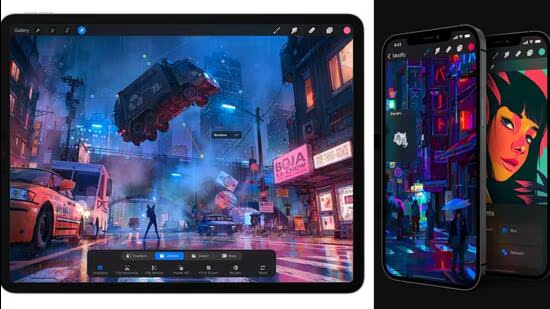20 august 2024 : Challenging a dominant trend requires both bravery and clear reasoning. In the realm of technology, particularly within the creative platforms developed by various companies, the rapid advancement of generative artificial intelligence (AI) over the past year has been unyielding. Applications for image and video editing, illustration, animation, and even the photo gallery on personal devices have increasingly incorporated AI features. A notable exception that has captured widespread attention is the Australian tech firm Savage Interactive. The creators of the Procreate applications have firmly declared their intention to refrain from integrating generative AI capabilities into their products.
CEO James Cuda has made emphatic statements such as, “AI is not our future” and “we’re never going there.” This sentiment is further reinforced by an official statement that asserts, “Generative AI is stripping the humanity from our creations. Built on a foundation of appropriation, this technology is leading us toward a desolate future.” Savage Interactive offers a suite of three applications: the widely-used Procreate illustration app for the Apple iPad, the animation app Procreate Dreams, also exclusive to the iPad, and the iPhone-optimized Procreate Pocket.
As long as this stance remains (and one hopes it endures for a considerable time), it stands in stark contrast to the strategies of their immediate competitors. This situation has resulted in two markedly different approaches within the industry, with the other exemplified by companies like Adobe and Canva. Adobe has progressively incorporated Firefly generative AI features into its applications, including Photoshop, Illustrator, and Lightroom. Similarly, Canva has made it evident that AI will be integrated throughout the Affinity art suite, a trend that has already been prominently showcased in recent updates to Magic Studio.
Cuda expressed strong discontent with generative AI in a video shared by Procreate’s official X account, stating, “I really f hate generative AI.” This statement reflects the stance of the company, which has been a leading provider of illustration applications for the iPad for several years, maintaining its position as a top-selling paid app on the App Store for the past seven years since its establishment in 2011. Cuda further elaborated, “I am not pleased with the current developments in the industry and their impact on artists. We will not be incorporating any generative AI into our products.”
Procreate has also assured users that there will be no alterations to their data and privacy policies, ensuring that they will not access any artist’s creations. In contrast, Adobe, a significant competitor of Procreate, announced new terms of service this summer that would permit them to access any content generated using their applications through both automated and manual methods. However, they have since clarified that user data will not be utilized for training AI models.
For those closely monitoring this sector, Procreate’s decision aligns with the demands of many users and creatives. A few years ago, the Japanese illustration application Clip Studio Paint, owned by Celsys, had to abandon its plans to integrate an AI image generator into its platform.
Another factor contributing to Procreate’s popularity among users is its one-time subscription model for premium features, which can be viewed as a lifetime subscription. The Procreate app for iPad is priced at ₹1,299, while Procreate Pocket for iPhone costs ₹599. Procreate Dreams follows a similar pricing structure at ₹1,999.
Cuda and Procreate are aware of the potential risks associated with their decision. They acknowledge, “In this technological rush, we may appear to be an exception or at risk of being left behind. However, we perceive this less conventional path as the more exciting and rewarding one for our community.” As the saying goes, no risk, no reward.
The fact remains that digital art platforms now seem to be adopting two very distinct approaches – one which is quite heavily reliant on AI, and another that isn’t. For users, there’s now greater choice to choose what they’re most comfortable with. That said, Procreate’s high profile announcement about shunning generative AI, could potentially provide momentum for more players in the industry to follow suit.

